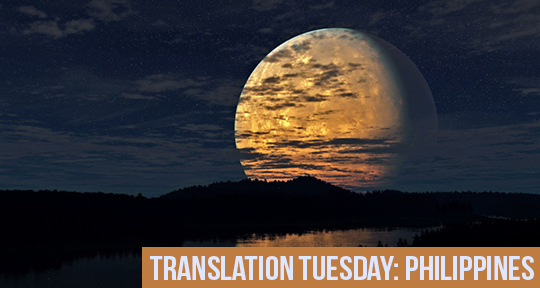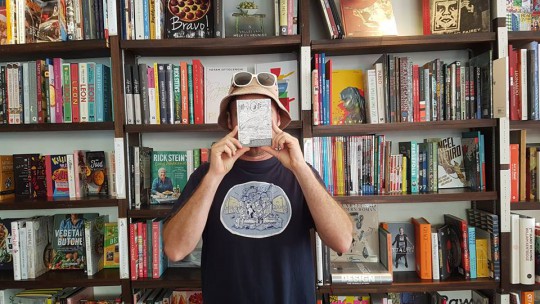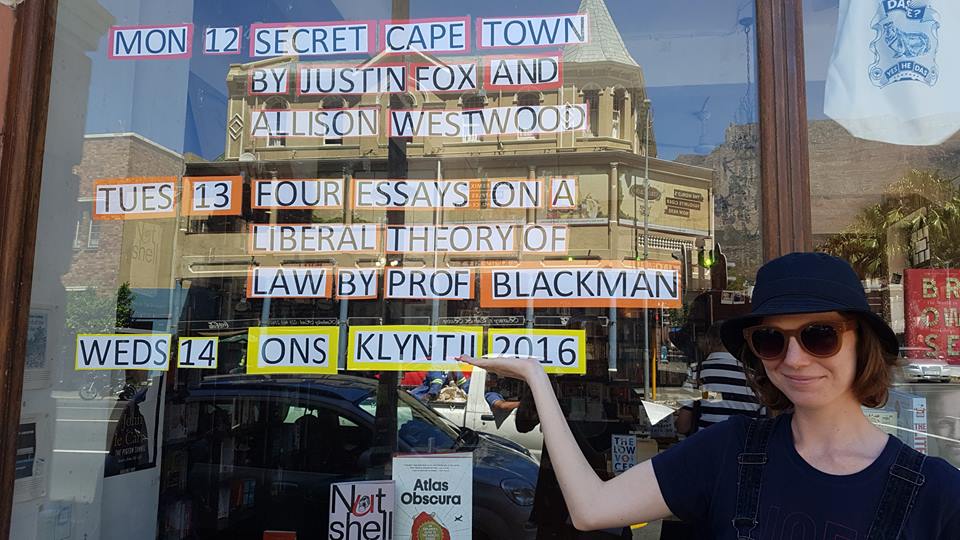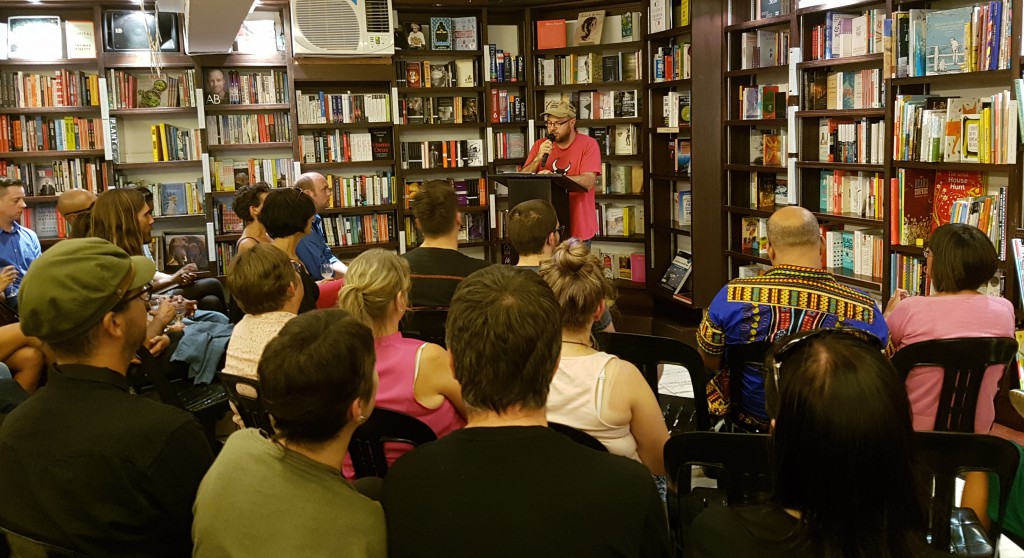In this week’s Translation Tuesday, a wish bestows the meaning of life in this allegorical prose poem by Mike L. Bigornia, excerpted from his award-winning collection, Dark Prose. A Diwata, a divine spirit of precolonial Filipino theology, grants a wish to the World of Beings, which includes the moon, the stars, the stone, and the wind. But the river wishes for something unusual—and she might not be the only one making the request. “Bestiary” is a thoughtful modern-day creation fable about the primacy of human intimacy.
This was the one and fateful hour. Though the Diwata be gracious, this was set to happen for the first and final time in the World of Beings.
Every being could make a wish to the Diwata but only once. Each granting of a wish lasts an entire night. So each wish should be of value; each fulfillment enough to stand the test of time.
That night, the Diwata went around the woods and listened to the wishes of the beings.
The moon made a wish and the Diwata giggled. The stone made a wish and it nodded. The wind made a wish and it puffed its cheeks. The stars made a wish and its eyes shone.
Until it saw the anxious river. “What is your wish, Beloved Child?”
“I want to know the meaning of life, Diwata. I believe I would find it once you give me breath.” The Diwata looked back, as if it had remembered something and gazed at the distance. But only for a moment. After, it smiled and turned back toward its companion.
Before the Diwata vanished, all the beings had made their wish. And before midnight, the river had now transformed to a beautiful maiden. Her complexion unblemished, fresh. Her hair flowed lavishly like waves. Under tonight’s unbelievable light from the clouds, her body seemed to glide through the woods.
What rare features, what rare sight! By her charm that surpasses the jasmine and the ilang-ilang, the cicadas resounded, the owls aroused in half-sleep, the civet made to sing. READ MORE…









